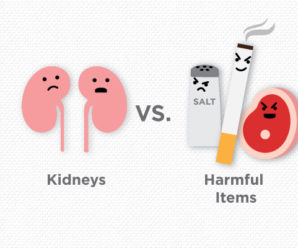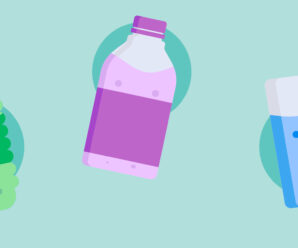A familiar buzz flies back to us every summer, and it often ends in an annoying itch.
Mosquitoes.
Unfortunately, mosquitoes can annoy far beyond the itching. Mosquito-borne diseases include Zika virus, West Nile virus, Chikungunya virus, dengue and malaria. While many cases result in no more than mild, short-term sickness, others have resulted in death.
“Many of us become used to the frequent mosquito visits and forget potential danger,” said Dr. Matthew Hall, a Marshfield Clinic infectious disease specialist. “We can protect ourselves and our families with proper mosquito repellents.”
Choose a repellent safe for your child
Compare active ingredients of these repellents to determine safety and age-appropriateness, or continue reading for information on other options.
Sprays vs. lotions
Mosquito repellents come in various forms.
Sprays quickly create a vapor barrier.
“Vapor barrier is the repellent shield that keeps mosquitoes away,” Hall said.
Lotions take longer to become effective, more like 20 minutes.
However, some lotions have time-released ingredients so lower chemical concentration provides longer protection.
“It truly depends on the person’s preference and need,” Hall said. “If you’re watching a baseball game, you may need a spray that starts working quickly and lasts a few hours. If you’re hiking all day, you may prefer a lotion with less chemical that lasts longer.”
Sunscreen, bug repellent combinations
Sunscreen needs to be reapplied regularly during outdoor days. Mosquito repellents do not. That being said, combination applications of sunscreen and repellents often don’t work well together.
Instead, when using both sunscreen and repellent, apply sunscreen then repellent, as recommended by Centers for Disease Control and Prevention.
Avoid ineffective “quick fixes”
A whole host of mosquito repellent options that are not sprays, wipes or lotions also are on the market. Hall warns against these:
- Bug zappers: Most are ineffective, expensive and typically attract mosquitoes.
- Repellent candles: Can be an inhalation hazard.
- Pure essential oils: Can cause irritation or allergy.
- Clip-ons or insecticide fans: Can be an inhalation hazard.
- Yard treatments: Require more pesticides than skin repellents.
Use these prevention methods instead
“There are safe tactics, in addition to EPA-approved sprays, that can help families ward off mosquitoes,” Hall said “For example, drain standing yard water where mosquitoes will reproduce.”
Use repellent as needed. Complement your repellent with:
- Ceiling or standing fans.
- Light colored clothes.
- Window and door screens.
“Travellers to areas with significant mosquito problems also should consider mosquito netting,” Hall said.








Leave a Reply